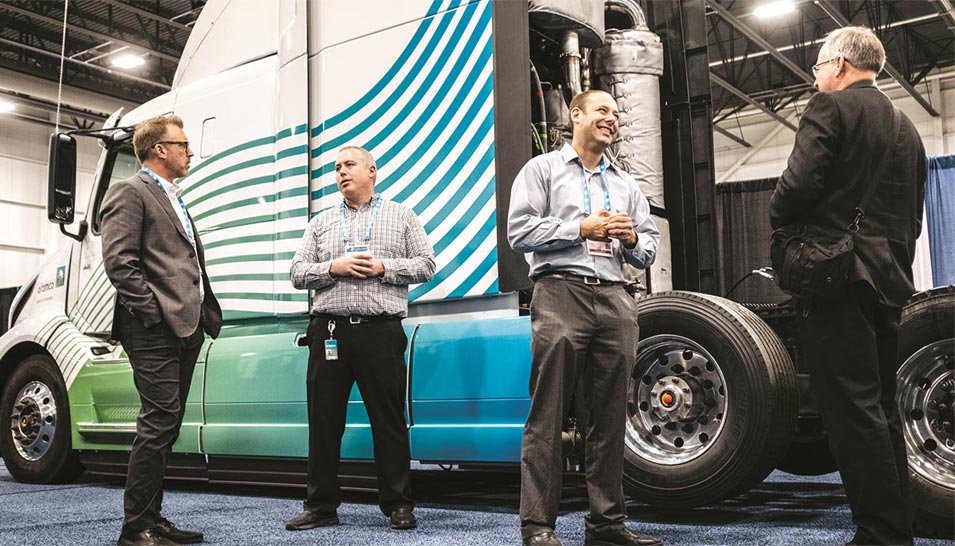
Aramco recently unveiled to the public for the first time its low CO2 Class 8 heavy-duty truck that uses a mobile carbon capture system that dramatically reduces CO2 emissions at the tailpipe. The truck was recently on display at the SAE Innovations in Mobility conference in Detroit.
Aramco recently unveiled to the public for the first time its low CO2 Class 8 heavy-duty truck that utilizes one of the company’s flagship technologies, a mobile carbon capture system that dramatically reduces CO2 emissions at the tailpipe.
The truck, on display at the SAE Innovations in Mobility conference in suburban Detroit, employs a number of carbon emissions reducing technologies to drop carbon emissions to an estimated 50% of the baseline vehicle.
The largest reduction comes from the mobile carbon capture system that was integrated into a Volvo VNL400 Class 8 truck. The system has demonstrated a CO2 capture rate of over 40% in the laboratory, and it will soon undergo road tests as part of Aramco’s efforts to develop technologies that improve the sustainability of transportation.
The capture system that sits behind the truck’s cab consists of several components that pull CO2 from exhaust gas using a selective absorbent material. The sorbent regenerates by harvesting available energy from the coolant and exhaust systems to produce a pure stream of CO2. This is stored in onboard tanks that are sized to be easily unloaded during refueling stops.
Once off-loaded, the CO2 could be put into dedicated pipelines for use in industry as a feedstock for low life cycle carbon materials or for sequestration underground. In addition to heavy-duty road vehicles, the system could potentially be adapted for use in locomotives and marine vessels.
“This system offers a compelling option to reduce carbon emissions from heavy-duty vehicles. It is a potentially game changing technology that offers the potential for deep decarbonization of the transport sector,” said Esam Hamad, leader of the mobile carbon capture program.
Working To Improve Our Technologies
Aramco’s previous mobile carbon capture research has included demonstration systems on a Ford F250 and Toyota Camry. Incorporating the latest technologies developed by Aramco, the most recent commercial truck demonstrator substantially increases the potential to reduce CO2 emissions in transport.
“Our capture rates have improved significantly just in the past few months,” said Alex Voice, lead chemical engineer on the project. “We are excited to continue our activities to extend these improvements, demonstrate the benefits on-the-road, and reduce the system size and cost, while increasing efficiency.”
To reach 50% CO2 emissions reduction, the truck also incorporates a number of other innovative technologies. Volvo offers both a liftable axle and engine turbocompounding to raise the efficiency of the truck and these both appear on the demonstrator.
In addition, Aramco has outfitted the vehicle with single-wide, low rolling resistance tires, as well as a low friction engine lubricant, and plans to convert the engine to run on a lower carbon content gasoline in the future.
While at the SAE event, Steven Przesmitzki of ARC-Detroit gave a well-received keynote presentation explaining how looking at emissions on a lifecycle basis shows that vehicle technologies beyond electrification are an attractive and economic pathway to meet future regulations as the world’s energy needs grow.